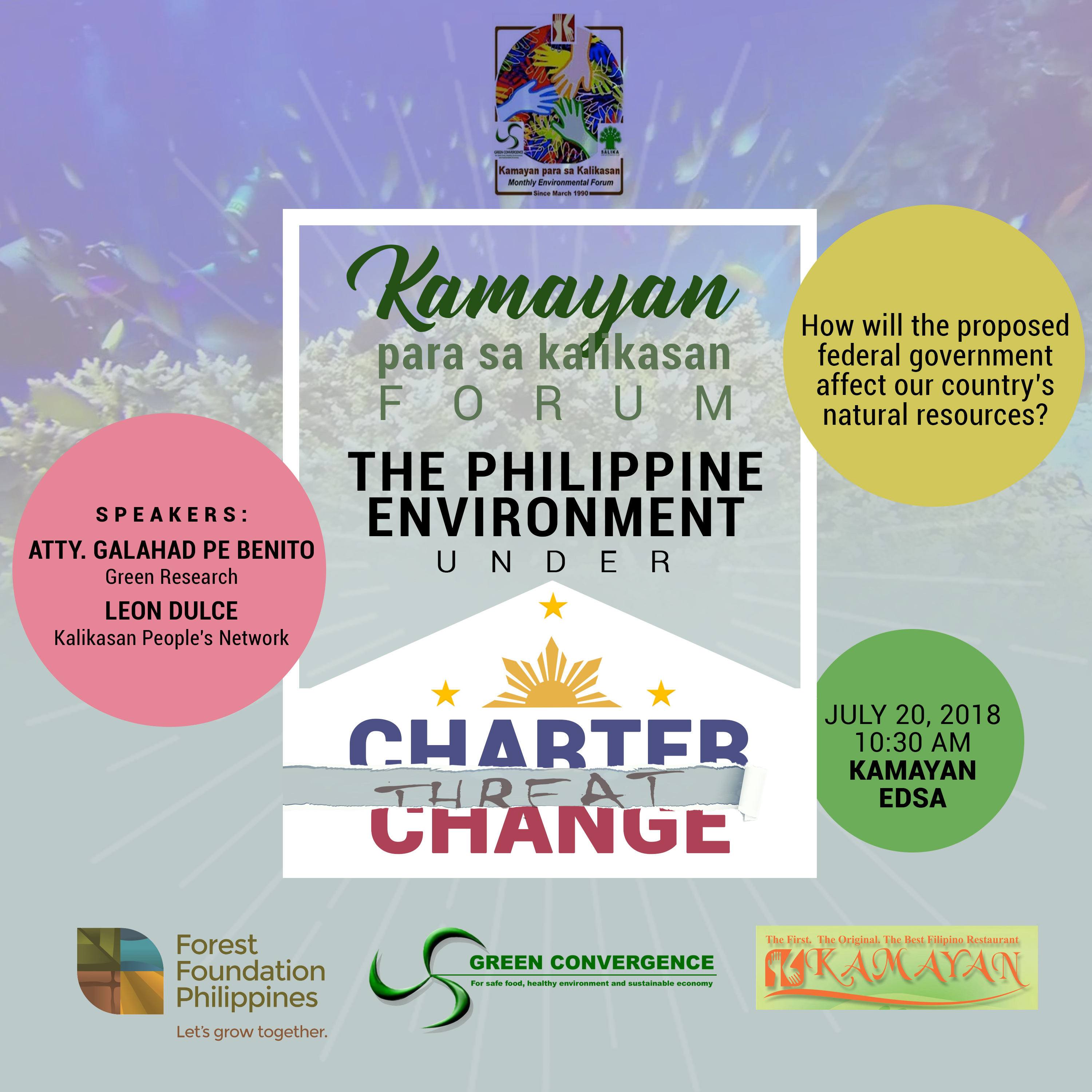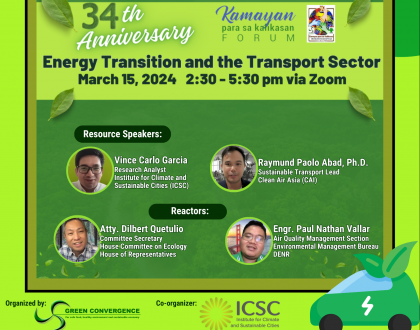Forum warns vs foreign resource ownership

August 04, 2018 at 10:00 pm by Rex Arcadio R. San Diego II via Manila Standard
Filipinos should be more careful and cautious concerning environmental conservation contained in the proposed Federalism constitution.
Participants in the recent Kamayan para sa Kalikasan Forum at the Kamayan Edsa came to this conclusion after a discussion on how the proposed Federal government affect the Philippines’ natural resources.
As lawyer Galahad Pe-Benito of Green Research noted that the Writ of Kalikasan is reinforced in the Federalism Constitution, the audience agreed that it would be to benefit of society to be wary of the “Trojan horses embedded in the proposed shift.”
“Under the proposed Federalism constitution, Congress has absolute power to change any law—particularly those concerning the environment—they wish. In effect, this proposed charter change is a war against the environment,” cautioned Leon Dulce of Kalikasan People’s Network.
Dulce noted that under Article XII on National Economy and Patrimony of the proposed Federal Constitution, foreigners are given opportunities to own properties in the Philippines 100 percent, a big difference from the 60/40 setup allowed under the 1987 Constitution.
“Even coastal areas are now open for foreign, private ownership. And 100 percent foreign ownership is detrimental to society” Dulce warned.
According to Dulce, most public lands—including timberlands, mineral lands, reclaimed lands, national parks and even mangroves—are open targets for reclassification to allow private ownership, which makes critical ecosystems “vulnerable” to exploitation.
Leasing of lands also exposes resources to overuse and overcapacity as businesses prioritize profits over resource conservation.
Citing the case of Boracay, Dulce also raised concerns about proper and independent monitoring.
“Instead of deploying hundreds of scientists, researchers and environmental experts to monitor developments in Boracay, the government sent 800 policemen. So, it is more difficult, even impossible to verify actions that are detrimental to the environment these days,” he pointed out.
Why the hurry to shift? Dr. Angelina P. Galang pointed out that modifying certain provisions in the 1987 Constitution would have the same, if not a better impact than the rushed shift.
“Perhaps there is little need to engage in a constitutional commission or charter change to address social, economic and environmental issues since the solutions are already available in the 1987 Constitution. What is lacking is proper implementation of the provisions,” explained Galang, Green Convergence convenor. “The 1987 Constitution can be improved, not necessarily changed to address environmental issues.
Recommended Posts

Energy Transition and the Transport Sector
March 15, 2024

As Farmers See It: Challenges in Agriculture
February 16, 2024

